When the Last Door Closes
What Small Abattoirs Really Mean

Earlier this year, I wrote about the closure of Newman’s, the last abattoir in Hampshire. For many of us, it was more than just a logistical problem. It was the loss of a key part of our farming lives. Our animals went from a short, calm drive and a humane process to longer journeys, higher costs, and more stress. The Sustainable Food Trust’s latest survey puts those feelings and experiences into hard numbers and honest stories, showing just how much is at stake for farmers, rural communities, and anyone who cares about where their food comes from.
What the Survey Tells Us
The survey gathered responses from 850 farmers and land managers across the UK. Here’s what stands out for me as both a farmer and a writer:
Around sixty percent of farmers sell at least some of their meat products directly to consumers, whether through farm shops, vending machines, online orders, or farmers’ markets. Thirty percent supply local businesses, and just five percent sell to supermarkets or large retailers. Most farmers use more than one sales channel, and many also process animals for home consumption or friends and family.
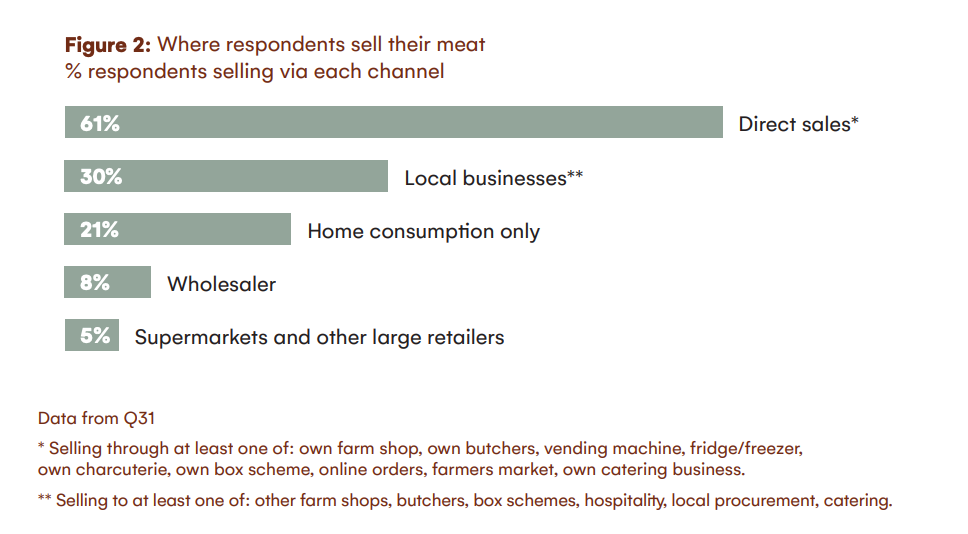
Many farmers rely on small abattoirs not just for slaughter but for a whole range of services. About ninety percent use private kill arrangements, where the carcase is returned to the producer for direct sales or home use. Thirty-two percent rely on abattoirs for carcase breakdown, and twenty-nine percent use them for general deadweight sales. Services like packaging, further processing, and labelling are also essential for adding value and keeping more of the food chain local.
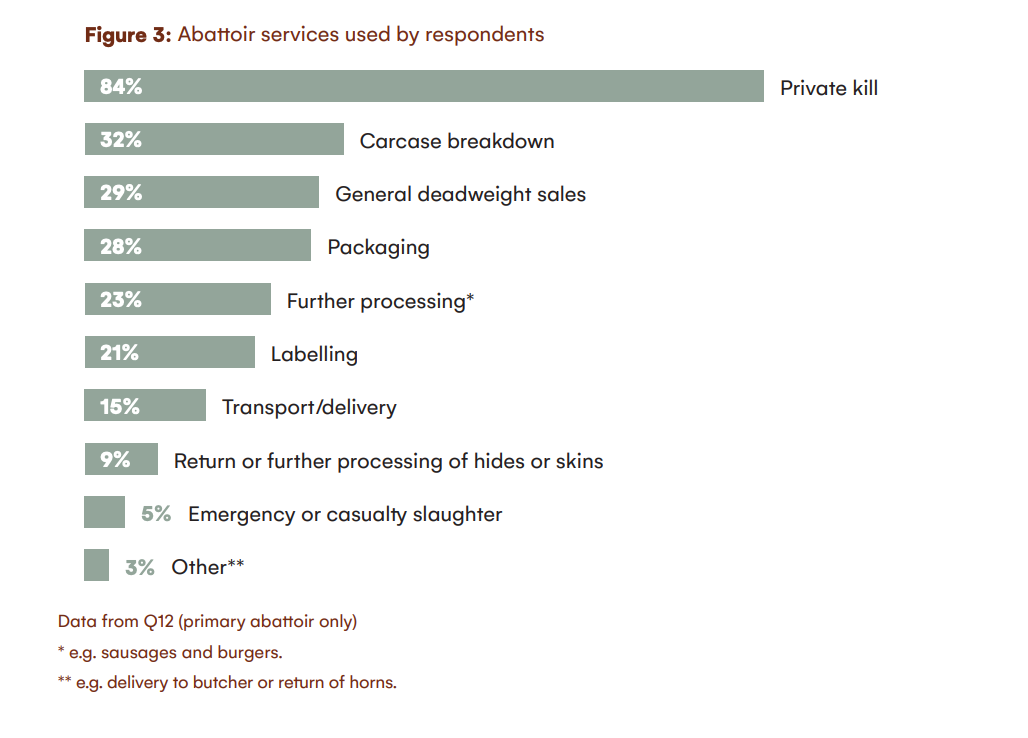
The impact of losing local abattoirs is stark. If their local abattoir were to close, forty-three percent of farmers said they would not be able to sell direct or locally. Thirty-one percent would have to send their livestock to market instead, and nearly a third would close their meat business. One in four would reduce the number of livestock they keep, and a similar number would have to use a large abattoir. Seventeen percent would not be able to keep rare or native breeds, and twelve percent would have to reduce the number of employees or hours. For some, the loss would be so severe that they would have to sell their farm.
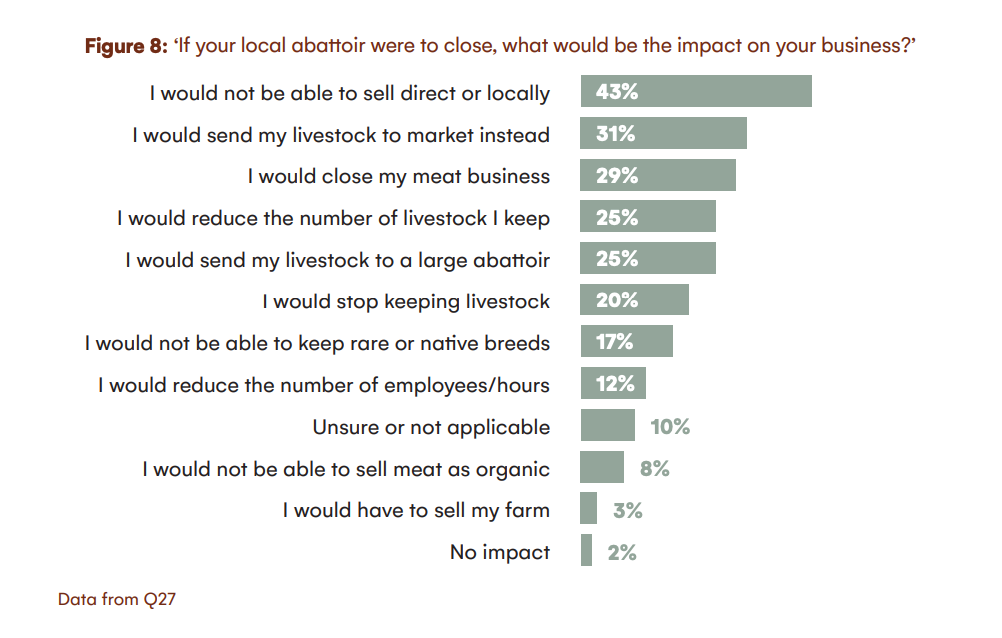
Practical Implications for Farms and Rural Communities
These findings show how small abattoirs are at the heart of local food systems. They make it possible for farmers to sell direct, keep rare breeds, and maintain high-welfare standards. When abattoirs close, it is not just the farmers who suffer. Local butchers, farm shops, and rural jobs are put at risk. Consumers lose the ability to choose meat that is traceable, local, and produced to higher standards. The knock-on effects are felt throughout the community, from lost jobs to the decline of rare breeds and traditional skills.
Reading Between the Lines
When you look closely at the survey results, the message is clear. If we do not find real solutions or offer better support for small abattoirs, the future of small farms and direct sales from farm to fork is genuinely at risk. The figures speak for themselves. Forty-three percent of survey participants said that if their local abattoir were to close, they would no longer be able to sell direct or locally. Twenty-nine percent said they would close their meat business altogether. These are not just numbers, they are livelihoods, rare breeds, and local food disappearing from our communities.
What Needs to Change
The Sustainable Food Trust’s recommendations are practical and necessary. Recognising small abattoirs as national infrastructure, reforming regulation so it fits small-scale realities, providing targeted funding, and supporting skills and apprenticeships, these are all steps we urgently need. Local authorities should treat abattoirs as part of the backbone of rural life and food security, not as an afterthought. Industry and government both need to make it easier for farmers to keep selling local, high-welfare meat.
Helen’s Perspective
But if we are truly serious about animal welfare, we should also be talking about on-farm slaughter. Across Europe, countries are introducing or expanding on-farm slaughter under strict guidelines. In Switzerland, it is now common for cattle, and Nordic countries like Sweden and Denmark allow it too, as long as there are proper stunning and food safety protocols. Pilot programmes in Germany, France, and the Netherlands use mobile abattoirs or veterinary supervision. The science is clear: the most humane option is to avoid stressful transport and allow animals to remain calm in familiar surroundings until the very end. Veterinary and animal welfare bodies agree that on-farm slaughter, when done right, reduces stress and suffering. Swiss studies even show lower stress, less trauma, and sometimes better meat quality.

I do not disagree that we must fight to keep our small abattoirs open. They are essential for local food, rare breeds, and rural jobs. But I believe the UK could and should adopt policies that allow for safe, strictly regulated on-farm slaughter as well. This would give farmers a real choice and ensure that animal welfare is always at the heart of what we do.
If you have experience with on-farm slaughter, or thoughts about what it would take to make this work in the UK, I would love to hear from you. The future of local meat and high-welfare farming depends on keeping all options open and making sure that policy keeps up with what farmers and animals actually need.
If you value honest, independent reporting on the realities of farming, please consider subscribing or sharing this post. Your support helps me keep this work going.
Enjoyed this post?
If you found it valuable, please consider sharing it with friends, colleagues, or anyone who cares about local food and animal welfare. Every share helps spread the word and keeps these important conversations going.
Want to support independent reporting?
Your support, whether by subscribing or upgrading to a paid subscription, makes this work possible and keeps it accessible for everyone. Thank you for helping me continue this independent coverage.
Sources
Abattoir Users Survey - The Sustainable Food Trust
Local abattoirs are an essential part of the food supply chain. - The Sustainable Food Trust
Small abattoirs are critical to farming and meat businesses in the UK, survey finds - The Sustainable Food Trust
New rules to allow safe slaughtering on the farm, in response to increasing demands from farmers - European Commission
Until death do they part: Loving and killing in Swiss on-farm slaughter - Science Direct
If just 5% of my readers tipped £1/$1 this essay would pay for itself in terms of time spent working on it.



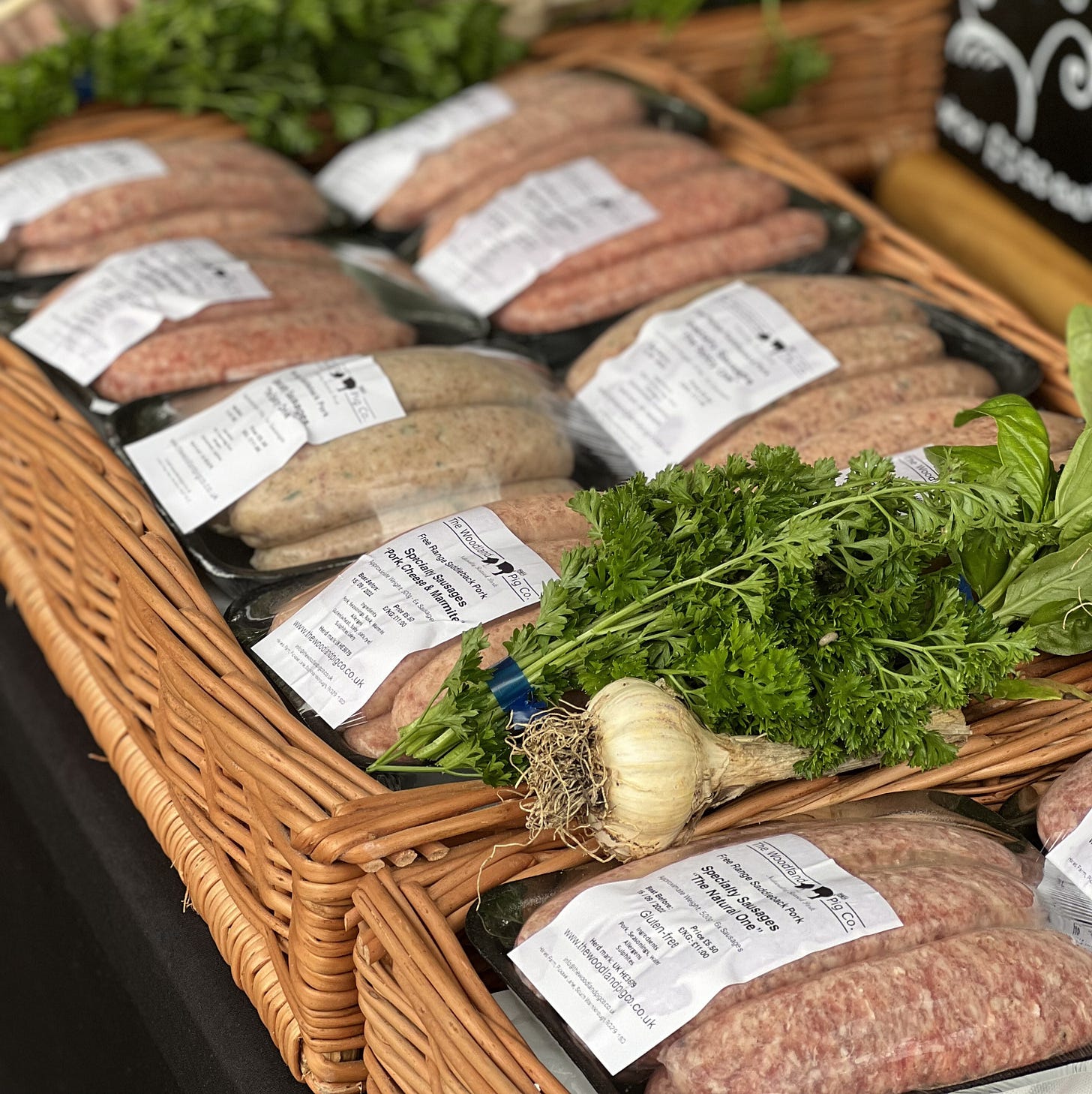
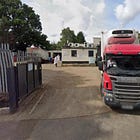
A few yrs ago I visited a fab organic farm nr Palma in Italy with cattle and pigs. They raise their heritage breed pigs to 2 years and the meat is cured for charcuterie - not wanting to ruin the meat by going to a large-scale commercial abattoir, they set up their own onfarm abattoir - took a lot of paperwork but they succeeded - such a great set up and it didn't actually cost a lot - such a shame we dont see more such schemes in UK
There was a slaughter cooperative formed here in Saskatchewan a couple of years ago. So far they’re doing ok, but government regulation is a huge concern here, too.
https://www.producer.com/livestock/abattoir-offers-new-market-options/